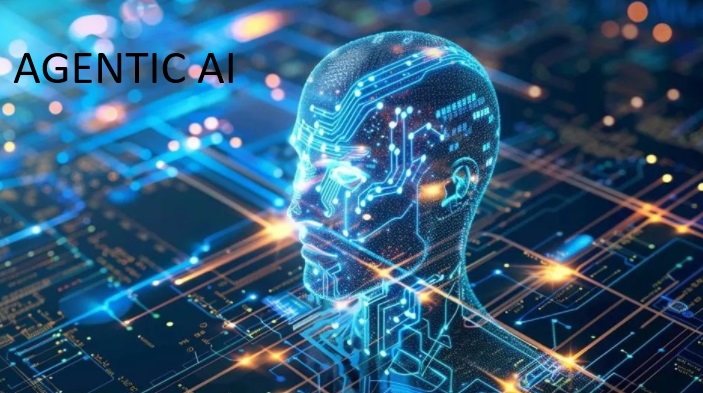AI agents have been utilized in business operations to automate routine tasks and to enhance efficiency, decision-making and customer experience.
Agentic AI is a new generation of AI agents designed to act and reason autonomously. Unlike traditional AI, which typically follows predefined rules and workflows, Agentic AI can independently solve complex, multi-step problems in business processes.
Some examples of business applications are customer service tasks in call/contact centers, healthcare functions such as patient interactions, or detecting fraud and performing forecasting in finance. Another example is in supply chain management with tasks such as inventory optimization, logistics management, and managing real-time demand fluctuations.
Agentic AI and traditional AI agents differ significantly in their capabilities and how they operate. Here are the key differences:
Traditional AI Agents
- Predefined Tasks: Traditional AI agents are designed to perform specific tasks based on predefined rules and instructions. Examples include chatbots and virtual assistants like Siri.
- Reactive: These agents respond to inputs in structured ways but do not make independent decisions. They follow workflows and machine learning models to execute tasks.
- Limited Adaptability: Traditional AI agents operate within controlled settings and lack the ability to adapt to new situations or learn from experiences.
Agentic AI
- Autonomous Decision-Making: Agentic AI operates autonomously, making independent decisions and adjusting strategies without human oversight. It can assess situations and solve problems dynamically
- Adaptive Learning: Agentic AI integrates advanced learning methods, such as reinforcement learning and adaptive algorithms, allowing it to improve over time and respond to emerging challenges
- Broad Applications: While traditional AI agents are task-specific, agentic AI can handle a wider range of tasks and interact with external systems both digitally and physically
Summary
- Autonomy: Agentic AI acts independently, whereas traditional AI agents follow predefined instructions.
- Adaptability: Agentic AI adapts and learns from experiences, while traditional AI agents operate within fixed workflows.
- Scope: Agentic AI has broader applications and can handle complex, multi-step problems, unlike traditional AI agents which are limited to specific tasks
Understanding these differences is crucial for leveraging AI effectively in various business applications.
Please contact us for a free AI assessment.


